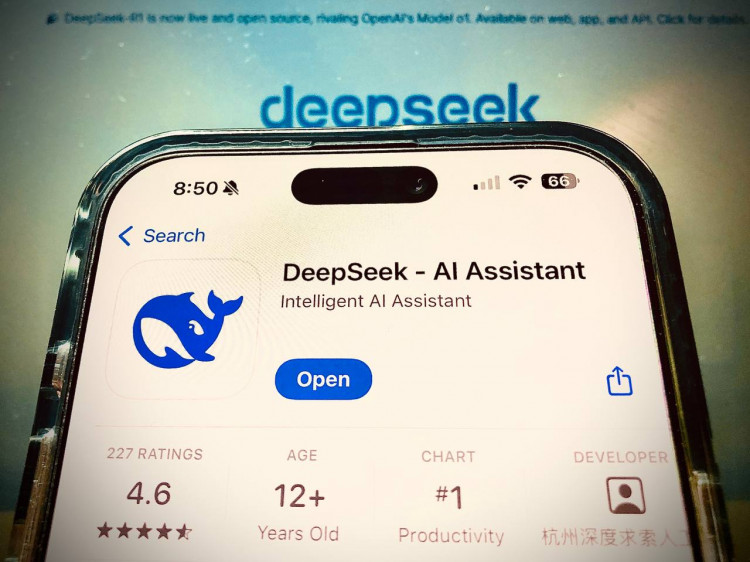Governments around the world are tightening restrictions on DeepSeek, a Chinese generative AI platform, over concerns about data privacy and national security risks. South Korea became the latest country to take action, with several government ministries banning the AI chatbot's use on internal networks. Australia, Italy, Taiwan, and the United States have also moved to limit access to DeepSeek, citing fears that sensitive user data could be accessed by Chinese authorities.
South Korea's Ministry of Trade, Industry, and Energy was the first to block the AI tool, followed by the Ministry of Foreign Affairs and the Ministry of National Defense. State-owned enterprises, including Korea Hydro & Nuclear Power and Korea Plant Service & Engineering, also restricted its use. A spokesperson from KEPCO KPS, which manages power transmission infrastructure, stated that "nuclear power plants are classified as top-level national security facilities, so we need to be cautious about the possibility of key information being collected by AI systems hosted on Chinese servers."
The bans follow growing scrutiny of DeepSeek's data collection practices. Ha Jung Woo, head of Naver Future AI Center, stated, "It is already well known there is a high risk of personal information leakage," adding that "all user data from DeepSeek-operated chatbots and apps are stored in Chinese databases." The Personal Information Protection Commission of South Korea has raised concerns over how DeepSeek processes user data, prompting the precautionary measures.
Australia also banned DeepSeek from all government devices, with Home Affairs Minister Tony Burke stating, "DeepSeek poses unacceptable risks, and this immediate ban is for the protection of national security and national interests." Italy's data protection authority, Garante, issued its own restriction on January 29, citing transparency concerns regarding user data. Taiwan followed suit, prohibiting DeepSeek's use in government agencies, while Japan, the U.K., and the Netherlands are considering similar regulations.
The wave of restrictions comes amid heightened concerns over Chinese AI firms and their potential links to government data collection. According to a report by Feroot Security CEO Ivan Tsarynny, DeepSeek's programming allegedly contains code capable of transmitting user data to China Mobile's online registry, a claim that has not been independently verified. Western governments fear that data collected by Chinese platforms could be used for espionage, surveillance, or influence operations.
Korean tech firms are also reacting to the controversy. Kakao, LG Uplus, and Line Yahoo have issued internal bans on DeepSeek, prohibiting its use for business purposes. Kakao, which has partnered with OpenAI to integrate ChatGPT into its services, instructed employees to avoid DeepSeek over concerns about data security. "The use of DeepSeek for internal business purposes is strictly prohibited," the company notified employees.
DeepSeek, launched in 2023 and based in Hangzhou, has rapidly gained traction as a competitor to OpenAI's ChatGPT. The AI startup made headlines after claiming that its latest model, DeepSeek R1, required only $6 million in computing power to train-significantly less than the $100 million estimated for OpenAI's GPT-4. The company's aggressive pricing strategy has fueled speculation that it could disrupt the global AI market, prompting scrutiny from regulators.
The U.S. is also considering measures against DeepSeek. NASA has already blocked the AI chatbot from its systems, while the U.S. Navy has warned service members against using it. Lawmakers are preparing to introduce legislation that would ban DeepSeek from government-owned devices.
The crackdown on DeepSeek mirrors broader tensions between China and Western nations over technology and cybersecurity. Chinese companies, including ByteDance's TikTok, have faced regulatory challenges in the U.S. and Europe over data privacy concerns. In response, China has restricted Western tech firms such as Facebook and ChatGPT from operating in its domestic market, favoring homegrown alternatives.




